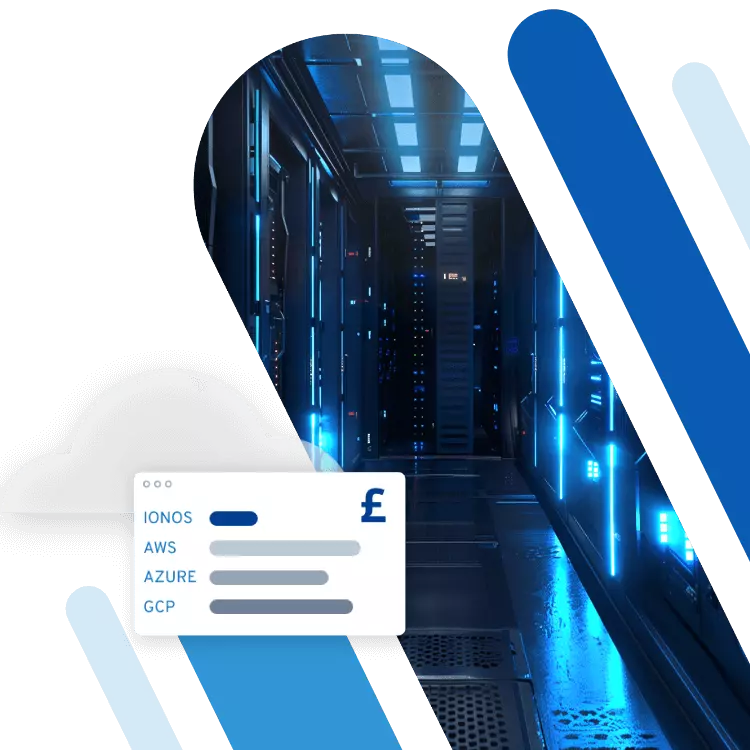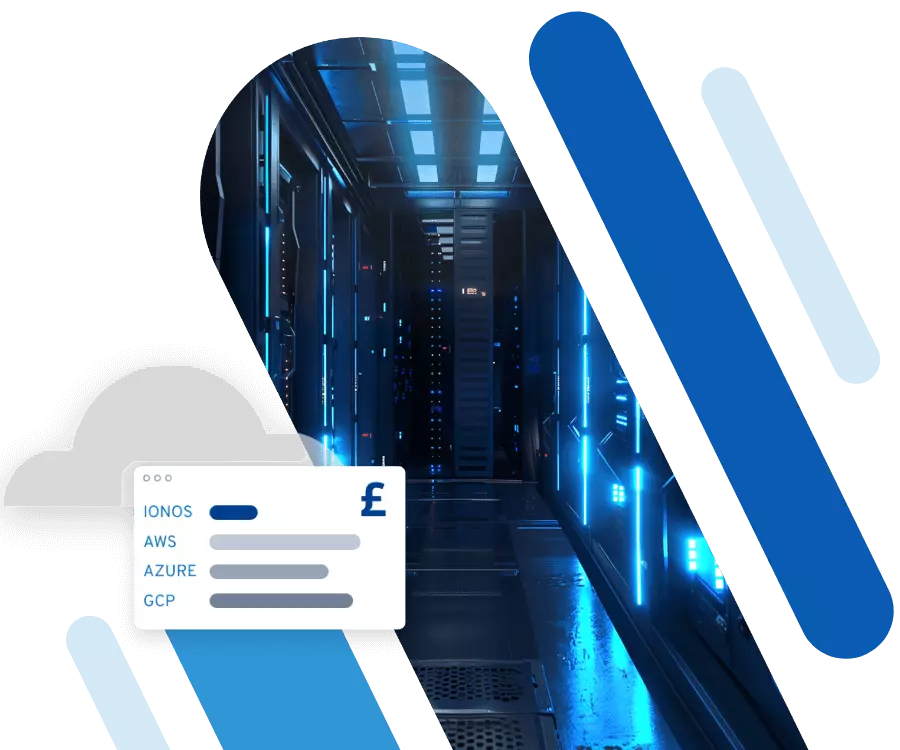What is Cybersecurity?
The digital world is becoming more and more interconnected, which means it’s more important than ever to be up-to-date on security matters, or more precisely: cybersecurity. On the internet, companies and private individuals are facing a growing number of dangers, which can cause a lot of damage. The issue of cybersecurity has, therefore, never been more in focus than it is right now. It covers not only internet security, but also all other aspects and areas of information and communication technology.
There are many means available to ensure a user’s cybersecurity. These range from being informed of possible dangers in the network, to training in information technology security, through to using cybersecurity tools and programs that can protect the user from cyberspace attacks. Given the fact that cyber attacks are not always carried out over the internet, cybersecurity includes a further aspect: minimising the dangers that can occur with modern electronics, telecommunication, and IT opportunities.
The dangers of the digital world
The term cybercrime is broad. It’s frequently used to refer to online crime, which is the opposite of cybersecurity. Even though the user is generally concerned about security measures on the internet in general, they often forget that any form of crime that includes electronic, telecommunication, and IT, can be categorised as cybercrime. Therefore, computer crime is a better term to describe the whole subject, since it covers a wider area.
Cybercrime includes, among other things, the illegal tapping of private, personal, or even critical information. This information can be stolen via the internet from a company network, as well as by technical devices that copy credit cards without the owner having any clue.
The NCCU (National Cyber Crime Unit) is responsible for responding to cybercrime threats and collaborating with partners (e.g. the Regional Organised Crime Units, and the Metropolitan Police Cyber Crime Unit) to reduce cybercrime.
Common cyber threats for consumers include:
- Phishing
- Webcam manager
- Keylogging
- File hijacker
- Ad clicker
- Screenshot manager
What is cybersecurity and can you ensure it?
The subject of cybersecurity and the risks involved are huge, especially due to ever-increasing digital possibilities. This shows how important cybersecurity is. For this, you must only take a look at how much data you process on a daily basis on your computer, tablet, or smartphone. Also, how many accounts you use for various applications and on different online platforms, as well as how many credit cards, bank details, and other sensitive data you’re asked for in your daily life. All this information is vulnerable and can be abused by cyber criminals. Most consumers will have to deal with credit card misuse at least once in their lives.
To prevent cyber criminals from causing any damage to you, those you know, or your company, and possibly resulting in legal consequences for the victim, it is important to be thoroughly familiar with the topic of cybersecurity and to make sure you know as much as possible about the necessary security and cybersecurity tools.
Suggestions for better cybersecurity: clamping down on data theft
Simple gadgets such as lead-reinforced credit card holders will stop offline data theft. Criminals are then prevented from tapping your credit card to get sensitive information from it.
One of the most important recommendations for cybersecurity is still something that many users have long been annoyed with: secure passwords. They may be long, cumbersome, and difficult to remember, but in terms of basic protection, they are extremely effective. The more complicated the password, the higher the chance of it preventing a hacker gaining access to your computer.
For comprehensive basic protection, however, additional cybersecurity tools are required and these should be standard for every user. A firewall, for example, is essential. This can be on the computer or on the router, as long as it is used somewhere. Firewalls prevent unauthorised access to your computer or network. The settings can work out who or what can access the internet, and who or what can access the network from the internet.
Firewalls are especially effective when combined with anti-virus programs, which not only detect viruses, Trojans, and other malware, but also remove them immediately. Regular security checks on the PC or the network are indispensable and should become routine to ensure you have optimal cybersecurity.
The current danger situation
While individuals are often victims of digital attacks, you shouldn’t lose sight of the big picture. Individuals, businesses, authorities, and government agencies, are all potential victims of cybercrime – or have been in the past.
Cyber attacks have become more and more complex in recent years. This means that it’s often impossible to take defensive measures against them or trace the origins of each attack. Added to this is the fact that criminals are striking worldwide since the internet has no limits. Networking devices makes it even easier for users to fall victim.
Warding off cyber attacks
Cybercrime has risen over the last few years, but it is difficult to work out how bad the situation has become in the UK. The Office for National Statistics has revealed that there were 5.6 million fraud and computer misuse crimes in England and Wales in the twelve months up until the end of June 2016.
Bank account fraud was the most common type of online crime with over 700,000 people being scammed due to fraud cases, and almost half a million people losing money because of hacking or computer viruses, in this same time frame. More than a quarter of the victims of fraud lost more than £500, but despite these amounts, many cases of cybercrime aren’t even reported.
Proven methods for a safer here and now
It is not easy to always keep up-to-date with the most current security standards for your home, company, or institution. In addition to special cybersecurity tools, you can also rely on a selection of the best practices, tips, and tricks that have proven to work for years.
This begins with a system that is up-to-date. Both the operating system and all the applications – whether on desktop PC, notebook, tablet, or smartphone – should be the latest version. Outdated programs may have security gaps in them that criminals can use to their advantage.
Antivirus programs and firewalls are an absolute must, despite the threats becoming increasingly more complex. The latest versions can ward off everyday hazards and prevent major damage. A good antivirus program and a well-configured firewall form a solid basis, which can then be built upon, especially when it comes to PC workstations or companies.
Keeping track of which data is accessible to which user, or what can be edited by whom, should be your top priority and has the same importance as a firewall or antivirus program. Companies should also be aware of what is known as social engineering. In the past, criminals have been scamming companies by gaining information on businesses that have many departments. They pretend to be from the IT department and say they need the log-in information from certain employees since they need to carry out their tasks for them. The employee hands over the information since they believe the IT workers are legitimate.
Having training sessions with employees about these dangers is therefore highly recommended so they are aware of the dangers and are more likely to spot problems. Employees should be taught how to properly use the company network and the devices connected to it. Logs also help to monitor which users were active at what time so that any anomalies can be detected and tracked.
Companies and authorities are advised to regularly read up on new technologies and news on cybersecurity to stay up-to-date. This enables you to optimise your own cybersecurity and offer your employees tips on how to keep the company network as secure as possible.
Private users should keep themselves informed on relevant portals as well as check how much protection their security software offers i.e. which updates and extensions are available, etc.
In any case, one thing is quite clear: cybersecurity is not always easy. No matter how well you believe you’ve implemented security measures on the internet and in other areas of your digital environment, there will always be gaps and weak areas that attackers will be able to infiltrate. Criminals are constantly developing their methods and working on new ways to steal data or sabotage projects. In the worst case, substantial financial and/or personal loss is the result. However, although it sometimes seems that fighting cybercrime is a lost battle, you must still take precautions to make sure the risk is as low as possible. You wouldn’t just hand your house key to a burglar, would you?


